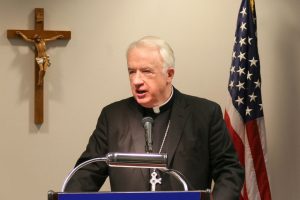
Article Title
The opaque finances that enable the Catholic Church’s abuse scandal
Link to Article: https://www.washingtonpost.com/opinions/the-opaque-finances-that-enable-the-catholic-churchs-abuse-scandal/2019/06/09/d6386cca-8968-11e9-a491-25df61c78dc4_story.html?utm_term=.a9bfa7ef1450
Source: Washington Post
Author(s): Editorial Board
Date: June 09, 2019
Synopsis of / Excerpts from Article
There is a connection between the financial corruption in the Catholic Church and the hierarchy’s inability to to satisfactorily address the ongoing problem of clergy sex abuse. This nexus is facilitated by a law that “exempts religious institutions and affiliated charitable entities from financial reporting that is required of other nonprofit organizations.”
According to the article:
“Even as the Vatican, seeking to move beyond its protracted season of scandal, calls for a new era of transparency, the church’s finances in the United States remain opaque.”
“That apparent discrepancy between rhetoric and reality was highlighted by a stunning account in The Postfocusing on the opulent lifestyle, and extravagant palm-greasing, undertaken for years by the now-disgraced former bishop of West Virginia, Michael J. Bransfield. The story revealed that Archbishop William Lori of Baltimore, who oversaw an investigation into sexual harassment allegations against Mr. Bransfield, whitewashed the resulting report to expunge the fact that he — along with 10 other of the most prominent and influential clerics in the United States and the Vatican — were paid thousands of dollars from what amounted to a slush fund controlled by the bishop.”
“The fact that the slush fund, which dispensed $350,000, was controlled by the free-spending, large-living bishop of West Virginia, one of the poorest states in the nation, is a self-evident irony. That the funds were lavished not just on cardinals but also on some of the young priests whom Mr. Bransfield is accused of abusing and molesting speaks to the conspiracy of silence at the heart of the church’s sex abuse scandal.”
“Other nonprofit organizations are required to file tax forms detailing their finances, called Form 990s, which are available to the public; the disclosure provides one check on abuse. Religious organizations are not required to file 990s.”